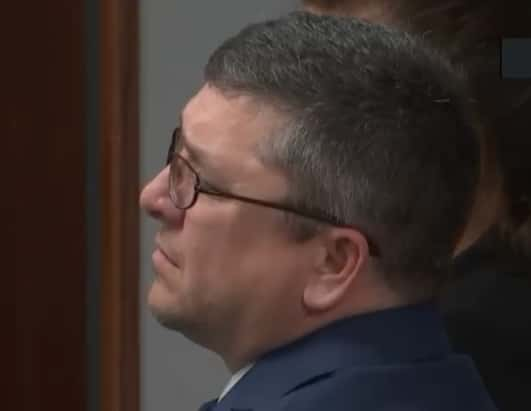
A federal court has dismissed a lawsuit brought by Marion County man acquitted after he was accused of killing his mother.
Jason Carter claimed investigators willfully ignored other suspects and evidence in the follow up to Shirley Carter’s death in 2015. Carter was found not guilty in criminal court in 2019, but was found civilly liable in 2018. The lawsuit named Mark Ludwick with the Iowa Division of Criminal Investigation and Reed Kious with the Marion County Sheriff’s Office as the primary individuals.
A federal judge ruled against Carter’s claims about the investigation, dismissing the case after it was revived in 2021 following dismissal by the Iowa Supreme Court.
Click here to read the full decision.
In the decision, U.S. District Court Judge Stephanie M. Rose concluded the following:
Jason argues that the investigation into Shirley’s murder was not a subpar investigation or negligence. [ECF No. 107-1 at 30]. Rather, he insists that Defendants purposefully ignored evidence, threatened witnesses, and discouraged the uncovering of exculpatory evidence. He contends that Defendants were deliberately indifferent to evidence that would tend to exculpate him and the SAC exhaustively details investigative failures that are shocking and egregious. By disregarding multiple leads and other viable exculpatory evidence, Jason argues that Defendants violated his constitutional rights.
For a plaintiff to prevail on a claim alleging a due process violation arising from a failure to investigate, he must show that law enforcement “intentionally or recklessly failed to investigate, thereby shocking the conscience.” Johnson v. Moody, 903 F.3d 766, 773 (8th Cir. 2018) (quoting Akins, 588 F.3d at 1184). Despite his insistence that Defendants’ decision to not aggressively pursue the leads detailed in the SAC, law enforcement officers are not constitutionally obligated to believe every witness or credit purported evidence that is inconsistent with other evidence. Winslow v. Smith, 696 F.3d 716, 734 (8th Cir. 2012). The SAC details no less than 17 individuals
with rumored possible direct involvement in Shirley’s murder. Case law does not support that failure to follow-up on leads or law enforcement making credibility determinations is “conscience shocking.”
In Moody, the Eighth Circuit rejected the assertion that law enforcement had conducted a reckless, conscience-shocking investigation when they were alleged to have “ignored factual inconsistencies in the evidence, negligently failed to look into leads, and did not question the alleged victim’s credibility.” 903 F.3d at 773. Similarly, there was no constitutional violation when a plaintiff previously convicted of murder prior to having his death sentence vacated, even though an officer failed to investigate another possible suspect identified by a witness after the murder. Clemmons, 477 F.3d at 966. Nor did an officer shock the conscience by failing to interview an alleged victim or other witnesses. Folkerts v. City of Waverly, Iowa, 707 F.3d 975, 981 (8th Cir. 2013).
Due process claims for failure to investigate have been allowed to proceed when officers engage in affirmative, wrongful conduct to manufacture evidence. In Winslow, there was evidence to support the claim that law enforcement systematically coached witnesses to provide false testimony consistent with investigators’ theory of the case. 696 F.3d at 733 (“Defendants may be held liable if they . . . systematically pressured witnesses to manufacture false testimony to fill gaps in an investigation.”).
In Lawrence County, discussed as length earlier, the Eighth Circuit held that officer in that case had no reasonable basis to rely on purportedly incriminating evidence when such incriminating evidence was a confession they had coerced from a suspect. Lawrence Cnty., 260 F.3d at 957. However, the panel agreed with the district court that with the evidence of coercion, “failure to investigate these additional leads would not support a claim of recklessness or deliberate intent and thus would not comprise a constitutional violation.” Id. at 955.
The inquiry into whether a right is clearly established, and whether qualified immunity is appropriate, “must be undertaken in light of the specific context of the case, not as a broad general proposition.” Mullenix, 577 U.S. at 12. In this case, Defendants were confronted with a “myriad” of leads as described in the SAC. Necessarily, this required law enforcement judgment to be exercised regarding the credibility of leads and discretion regarding which warranted further investigation.
Reviewing the factual allegations, many of the material witnesses and possible suspects identified in the SAC were, in fact, interviewed during the investigation. Rory Pearson was “interviewed multiple times.” [ECF No. 30 ¶¶ 136, 309]. Christa Norris was interviewed. Id. ¶ 205. Michelle Daniels participated in an interview. Id. ¶ 210. So did Amber Shinn. Id. ¶ 244. The same for Jason Beaman. Id. ¶ 254. John Followill13 was interviewed by law enforcement, more than once, early in the murder investigation. According to the SAC, he was interviewed by law enforcement in July and October 2015. Id. ¶¶ 278, 289. Joe Sedlock spoke with law enforcement as early as September 4, 2015, and again the following month. Id. ¶¶ 247, 296, 381.
At best, the allegations contained in the SAC make out a claim for a negligent and subpar investigation. They do not support a deliberate intent or recklessness standard. There is nothing deliberate about Ludwick’s “box” of evidence as alleged. Rather, the SAC discusses missing, mislabeled, and damaged evidence discs in the box. Id. ¶¶ 123, 127, 129. The SAC also recites that Defendants often expressed confusion about which witnesses had been interviewed. Id. ¶¶ 248, 292. They were sometimes unclear about who had custody of reports for certain witnesses. Id. ¶ 138. There were allegedly missing audio files and other documents. Id. ¶¶ 143–47. The SAC complains about typos in emails. Id. ¶ 212. And failures to document interviews in written or audio. Id. ¶ 248. And criticizes Ludwick’s failure to obtain all the cell phone numbers for Joe Sedlock. Id. ¶¶ 345–47.
The facts contained in the SAC, taken as true on a motion to dismiss, simply allege a negligent investigation. It does not state a claim for a reckless investigation or one conducted with a deliberate intent to violate Jason’s due process rights by shocking the conscience.
III. CONCLUSION
For the reasons discussed above, Defendants’ Motions to Dismiss are GRANTED. [ECF
Nos. 99; 100].
IT IS SO ORDERED.Dated this 19th day of March, 2024

